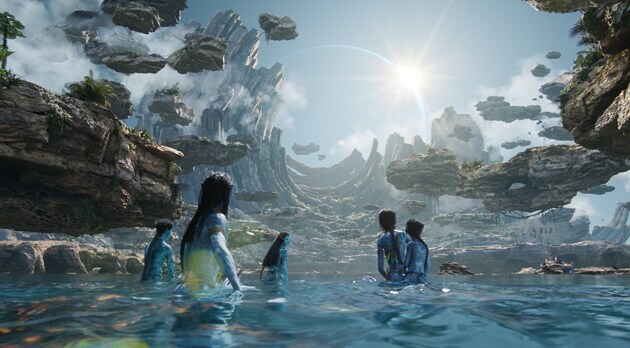In the vast kingdom of Hollywood, where sequels have become a staple, there stands a director who reigns supreme over the art of continuing a story. James Cameron, often hailed as the king of the sequel, has left an indelible mark on the film industry with his visionary approach to expanding cinematic universes. With films like “Aliens,” “Terminator 2: Judgment Day,” and now the highly anticipated “Avatar: The Way of Water,” Cameron has proven himself to be a true pioneer in the realm of sequels.
While many sequels merely attempt to replicate the success of their predecessors, Cameron takes a different path. He skillfully builds upon the existing foundation, crafting narratives that cleverly expand the established templates. Take, for instance, “Aliens.” Departing from the horror-driven atmosphere of Ridley Scott’s “Alien,” Cameron introduced a more adventurous and muscular battle by bringing in the Marines. He delved deeper into the complex dynamics of the alien creatures, providing audiences with a thrilling and immersive experience.
In “Terminator 2: Judgment Day,” Cameron once again defied expectations. He transformed the original villain into a hero, turning Arnold Schwarzenegger’s catchphrase-spouting cyborg into a force for good. Additionally, he introduced a new and formidable mechanized threat, propelling the story into uncharted territory. This film also marked a significant leap forward in terms of computer-generated visual effects, setting the stage for the technological advancements witnessed in “Jurassic Park” and beyond.
Similarly, “Avatar” pushed the boundaries of digital filmmaking. With “The Way of Water,” Cameron has once again expanded the horizons for visual effects, leaving audiences awestruck. His mastery in this arena has garnered praise from industry experts like Stan Winston, who recognized Cameron as the ultimate pioneer.
Cameron’s approach to sequels goes beyond giving the audience what they liked in the original film. He seeks to challenge expectations and provide fresh perspectives. As he aptly stated in a recent interview, “You give the audience comfort that the things they liked about the first film are gonna be there, but they’re going to be turned upside down or jumbled in a way that you don’t expect.”
In the case of “Aliens,” Cameron skillfully balanced the gruesome reminders of the alien threat with a rip-roaring thriller that explored deeper emotional aspects. Sigourney Weaver’s Ripley transformed into an action hero and a surrogate mother, adding layers of complexity to the narrative. Likewise, “Avatar: The Way of Water” introduces new dynamics by delving into the central couple’s family life and exploring the challenges faced by their children. Cameron seamlessly weaves together these elements while introducing an entirely new clan with its own rich culture.
The art of the sequel is more than just a commercial endeavor. It is an opportunity to embrace creativity within the familiar. While Hollywood often clings to the comfort of replicating past successes, Cameron refuses to rest on his laurels. He transcends the notion of sequels as mere consumer products, instead treating them as a canvas for innovation and storytelling.
James Cameron’s mastery of the sequel has earned him a special place in Hollywood’s pantheon. While he may not technically be the king of anything, his visionary approach and unwavering commitment to pushing the boundaries of filmmaking have elevated him to a certain kind of royalty. As we eagerly await the release of “Avatar: The Way of Water,” we can be certain that Cameron’s latest offering will once again redefine what is possible in the world of cinema. Long live the king of the sequel, a true pioneer of our time.


